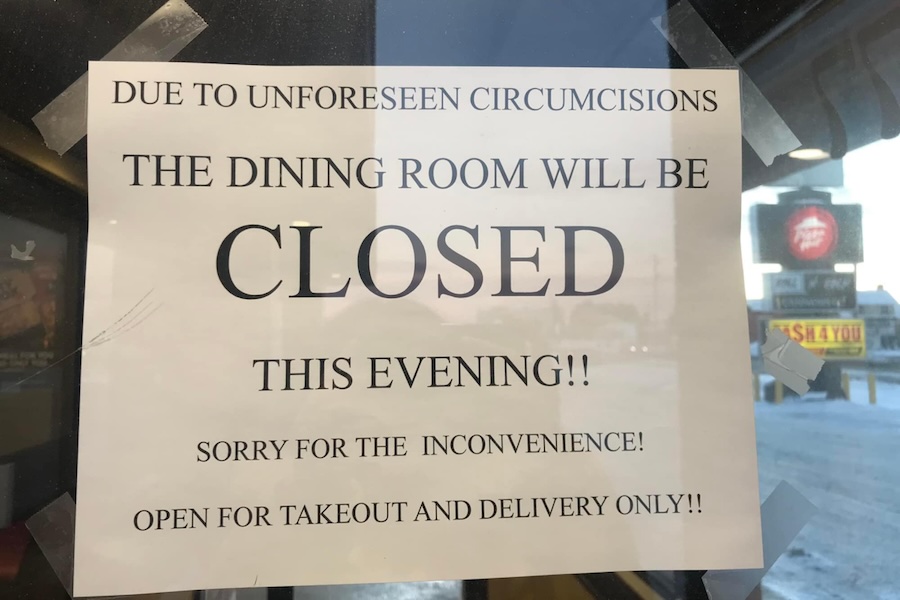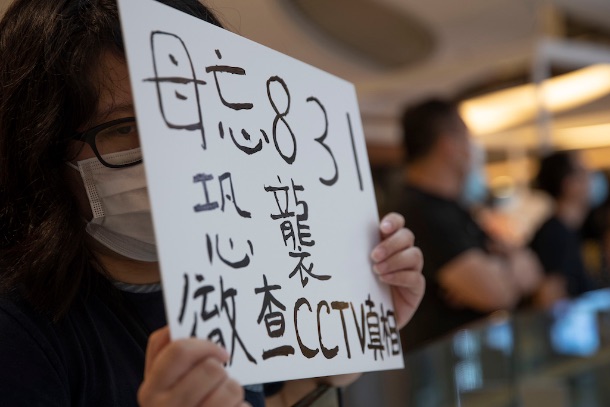Archive for Miswriting
April 5, 2025 @ 6:39 am· Filed by Victor Mair under Miswriting, Names, Spelling, Typing
From time to time, people of all nationalities mistype my given name as "Vicotr". The weird thing is that I myself fairly often mistype my name that way.
Surely I and the people who write to me know how to spell and pronounce my name. So why does this mistyping happen so often?
It garners nearly 50,000 hits on Google. You can find "Vicotr Hugo" and "RCA Vicotr" online.
There's a website called Names.org that has a long page for "Vicotr", you will find a great deal of information about "Vicotr", including how to pronounce it. If you push the "play" buttons on this site, the automated male and female voices will dutifully pronounce "Vicotr" for you.
Not only that, this site obligingly provides the following "Fun Facts about the name Vicotr":
- When was the first name Vicotr first recorded in the United States? The oldest recorded birth by the Social Security Administration for the name Vicotr is Tuesday, October 29th, 1878.*
- How unique is the name Vicotr? From 1880 to 2023 less than 5 people per year have been born with the first name Vicotr. Hoorah! You are a unique individual.
- Weird things about the name Vicotr: The name spelled backwards is Rtociv. A random rearrangement of the letters in the name (anagram) will give Ircovt. How do you pronounce that?
*QWERTY was invented in 1874. One of my forthcoming posts will be about QWERTY, and will include some facts that you almost certainly didn't know about it.
Read the rest of this entry »
Permalink
February 10, 2024 @ 9:03 am· Filed by Victor Mair under Errors, Miswriting
Sign on the door of a Pizza Hut eatery in Timmins, Ontario:

(source)
Read the rest of this entry »
Permalink
November 19, 2023 @ 7:14 pm· Filed by Victor Mair under Errors, Miswriting
From the Twitter / X account of the famous popular science writer and muckraker, Fang Zhouzi / Fang Shimin:
Read the rest of this entry »
Permalink
November 16, 2023 @ 8:04 pm· Filed by Victor Mair under Abbreviation, Errors, Miswriting, Spelling, Writing
From Nathan Hopson:
I have been reading some handwritten documents from the 1960s and 1970s, and have been reminded that even beyond abbreviations, there were still "nonstandard" kanji in use. I guess this took me off guard mostly because these are school publications.
On the abbreviated side, the most obvious example is:
第 → 㐧
The "nonstandard" kanji that interested me most were these two:
1. 管 → 官 part written as 友+、

2. 食缶 as a single character, but paired with 食 to be 食[食缶]

Read the rest of this entry »
Permalink
June 5, 2023 @ 11:43 pm· Filed by Victor Mair under Literacy, Misspeaking, Miswriting
From a story on CNN on "begpackers" in Asia:

Read the rest of this entry »
Permalink
November 3, 2022 @ 9:25 am· Filed by Victor Mair under Language and food, Lost in translation, Miswriting, Transcription
At the top left and bottom left of this restaurant's home page, written in very small Roman capital letters, it says, "ORISSIC HOT POT", and that is paired with the Chinese name, "zhè yī xiǎoguō 這一小鍋" ("this small pot").
If we do a Google search on "orissic hot pot 這一小鍋" (without the quote marks), we will get 4 pages and 80,000 ghits, the first of which is bafflingly "jīngdiǎn shítou guō" 經典石頭鍋 ("Classic Stone [hot] pot"). If we do a Google search on "經典石頭鍋 classic stone [hot] pot" (without the quote marks), we will get 4 pages and 15,100 ghits.
Read the rest of this entry »
Permalink
March 14, 2022 @ 11:13 am· Filed by Victor Mair under Computational linguistics, Errors, Etymology, Information technology, Language and computers, Language and psychology, Miswriting, Phonetics and phonology, Psychology of language, Typing
In this age of typing on computers and other digital devices, when we daily input thousands upon thousands of words, we are often amazed at the number and types of mistakes we make. Many of them are simple and straightforward, as when our fingers stumblingly hit the wrong keys by sheer accident. People who type on phones warn their correspondents about the likelihood that their messages are prone to contain such errors because they include some such warning at the bottom:
Please forgive spelling / grammatical errors; typed on glass // sent from my phone.
Read the rest of this entry »
Permalink
July 30, 2021 @ 7:07 am· Filed by Victor Mair under Colloquial, Errors, Miswriting, Orthography, Philology, Phonetics and phonology, Reading, Vernacular
I wrote to a colleague who helped me edit a paper that it had been accepted for publication. She wrote back, "I’m glad it is excepted".
Some may look upon such a typo as "garden variety", but I believe that it tells us something profoundly significant about the primacy of sound over shape, an issue that we have often debated on Language Log, including how to regard typographical errors in general, but also how to read old Chinese texts (e.g., copyists' mistakes, deterioration of texts over centuries of editorial transmission, etc.).
Often, when you read a Chinese text and parts of it just don't make any sense, if you ignore the superficial semantic signification of the characters with which it is written, but focus more on the sound, suddenly the meaning of the text will become crystal clear. In point of fact, much of the commentarial tradition throughout Chinese history consists of this kind of detective work — sorting out which morphemes were really intended by a given string of characters.
Read the rest of this entry »
Permalink
May 3, 2021 @ 7:44 am· Filed by Victor Mair under Language and food, Miswriting, Names
The name of my favorite pastry shop in Philadelphia's Chinatown is Bǎobǐng diàn 飽餅店 (English name "Mayflower Bakery & Cafe"). They serve all sorts of Chinese pastries, cakes, buns, turnovers, etc. Their egg tarts (dàntà 蛋撻) are divine, and you can get everything at scandalously reduced prices late in the afternoon.
Nearly all of the Chinese friends who go to Bǎobǐng diàn 飽餅店 with me think the name is strange and believe that, if anything, it should be Bāobǐng diàn 包餅店, but even that seems rather odd to them.
Diàn 店 means "shop", so we won't worry about that. Bāobǐng 包餅 would mean "bun and (flat)cake / pie / cookie / pastry", which my friends can make sense of, but they are not familiar with that wording. On the other hand, bǎobǐng 飽餅 would mean "full (flat)cake / pie / cookie / pastry", which they have a hard time making sense of, though most of them just say, "Well, they must mean they are a shop whose (flat)cakes / pies / cookies / and pastries will / can make you full".
Oy, the joys of naming in Chinese!
Read the rest of this entry »
Permalink
September 17, 2020 @ 5:18 pm· Filed by Victor Mair under Errors, Language and computers, Miswriting, Speech technology
That's part of a message from one of my students. I knew right away what he meant, but — as always — I'm curious about what causes such off-the-wall typos. It can't be because of a spellchecker gone awry. So I asked the student, "What type of input system do you use? I'm trying to think about how that was produced."
He replied, "I use the bog-standard* American English input that Apple has. I think I missed the 'h' and it grabbed it from there? Maybe an additional incorrect letter?
[*This was the first time I encountered this expression, and I didn't know what it meant.]
I followed up:
just regular keyboard?
not on iPhone?
no shortcuts? swypes?
speech recognition input?
Read the rest of this entry »
Permalink
September 4, 2020 @ 9:46 am· Filed by Victor Mair under Errors, Miswriting, Orthography, Phonetics and phonology, Writing
A protester holds a placard that reads "Do not forget 831 terror attack, truth needs to be seen on CCTV" during a demonstration at a Hong Kong mall on Aug. 30 on the eve of the first anniversary of the Prince Edward MTR station incident when police stormed the station to make arrests during massive anti-government protests. (Photo: AFP)

(Source)
Read the rest of this entry »
Permalink
May 27, 2020 @ 7:15 am· Filed by Victor Mair under Errors, Miswriting, Writing
As is my custom, I was zipping along merrily, letting my fingers dance on the keys to transfer my thought-flow into typed words. Usually when I'm in a good mood and this happens — which is almost always — I'm thinking thoughts in my head (speaking the sounds of the words I want to type) and letting the neuro-muscular synapses and reflexes take care of the actual writing. It's really quite a nice, pleasurable collaboration between mind and body.
So, my normal practice is to think thoughts, "let my fingers do the walking", and enjoy watching what appears on the computer screen. But I do have to keep an eye on what my fingers are producing, because sometimes it is hilariously wrong and only tenuously connected to what was going on in my brain.
Read the rest of this entry »
Permalink


